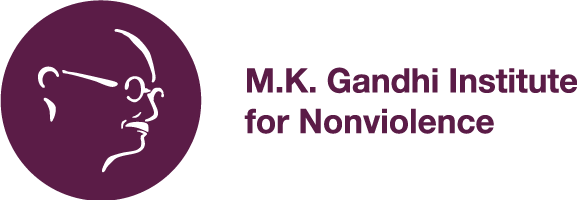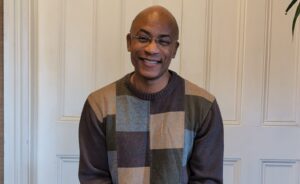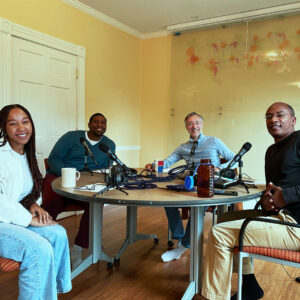Last week, I was invited to speak at a banquet for student leaders at Paul Smith College on the topic of leadership. Below is the text for the talk, offered in gratitude to all of us working to build and restore a world that works for all.
Webster’s dictionary defines leadership as…
Just kidding. Here’s how I think of leadership, and this has been heavily influenced by my teachers, I think of leadership as the ability to steward and mobilize resources in service of caring for the whole. And I mean resources in a really expansive way – skills of others, material resources, time and effort. And when I say “whole” I also mean this in as broad a sense as possible. So that even if I’m working with a relatively small group, I want to be thinking about how the work we do is a part of a larger community and maybe even our global whole. And how we can mobilize ourselves towards the liberation of everyone, not just our small group.

For me, moving into leadership doesn’t mean, necessarily, that we have a title or we’re credentialed and it isn’t only one type of work. I believe each of us has unique gifts, talents, skills, and interests that we feel pulled or called to do. Maybe you know what these are already, maybe you felt glimmers of them in childhood and they’re re-emerging, maybe they’re still hiding out, waiting to emerge. When we engage with these gifts or skills in service of the whole, this is when I think our leadership is at its most powerful. It means you recognize that the systemic exists even in the small. And that the actions you take, your behaviors, your speech, can help shift things away from harm and oppression and towards caring for the needs of all. So, for example, maybe your skills and talents, what you feel driven to do has to do with cooking. A leadership orientation to cooking doesn’t mean that you’re the boss of a kitchen, the head chef, although it could. Maybe it means that you figure out ways to source ingredients that are sustainable, maybe it means you work towards equitable and safe business practices in a kitchen you cook in, maybe it’s showing care and kindness to a co-worker or someone you’re cooking food for who is experiencing a hardship.
As for me, I’ve been drawn to conflict work for as long as I can remember. Building understanding between people and transforming conflict has been my greatest pull in life and so my examples stem from this area because it’s where my leadership most powerfully shows up and also where it feels like I have the most room to grow!
When I was in 6th grade I was walking home from school and saw something painful that changed how I thought about leadership, not right away but eventually. I remember it was really hot out, and it was early fall. I wasn’t quite used to being a middle schooler yet and neither were my friends, we were still trying to work out who we were and how to fit into this scarier-seeming school. As I was approaching a corner with my friend, I saw across the street the older sister of one of my other friends speed walking and being chased by two other girls. They pushed her in the back and were swearing at her, then one of them jumped on her back and scratched her face. She yelled to them to leave her alone and kept trying to get away without doing a full out sprint. I felt confused and distraught and my adrenaline was going up. “I think I should go over there”, I told my friend. She looked back at me with the specific horror of an adolescent girl about to be so deeply mortified that she would quite literally rather die. “No way, that’s none of our business, she probably did something to deserve it”, she replied. “To deserve getting beat up?”, I thought but I didn’t say out loud. I kept watching and pausing on the sidewalk, my friend urging me to keep my eyes down and keep moving. But I just felt so completely compelled to do something, a natural instinct to intervene, to mobilize my own capacity to care for the whole and guess what I did?
Nothing. I didn’t do anything, I kept walking, turned the corner to go home with my friend, comforting myself that I knew where that older girl lived and she was almost home. I tell this story because I think we all have similar experiences. Not necessarily of watching someone get beat up and shying away from doing something, but of feeling a drive to do something, to take a step towards leadership and we don’t do it – we let someone else or the someone else’s in our own minds tell us “no”. We convince ourselves that we’re not good enough, smart enough, that we need more training, we need a different degree. We make ourselves small and we convince ourselves we don’t matter. But we do. Each of us does, in our own really unique ways.
Years later, I came across a model that I want to name here and I’ve seen this show up in a couple of different places and ways. My favorite version of it comes from Miki Kashtan and is like this: picture three concentric circles, like a bullseye. This whole circle could represent our ways of engaging with leadership and collective liberation. So the innermost circle is kind of like our home-base, this is our comfort zone, or our no-brainer zone. These are the actions that we just naturally take that care for the whole, but are no big deal for us. These are really unique to each person. So an example for me would be when I’m in a group and see someone has something to say and maybe the person running a meeting hasn’t noticed, it’s super easy for me to speak up and say, “hey, I think Jay has something to say”. This is so easy for me, I don’t even really consider it a leadership move, even though for some people, this would be really hard to do. So this is in my no-brainer/comfort zone but not in someone else’s. Zooming out, to the outermost layer of the bullseye, this is our “no-way” zone, this is doing something that we see could really help care for others, include others, liberate ourselves, etc. but it just seems way too hard, way too far outside of our capacity. These are the things we’re way too scared of to actually do yet or we just can’t imagine doing right now. Then there’s the middle circle, this is our stretch zone, our learning zone, or my favorite phrase for this, again from Miki Kashtan, “the zone of strategic discomfort”. This is where it’s actually within our capacity to act in a way that would care for all, to do something to make a change but it’s uncomfortable for us to do so. Acting in this zone is really magical though because the more we do it, the more we stretch, the more we grow as individuals and the more our inner “no brainer” zone grows. And I can’t stress this enough, our zones are different from others. Looking back on that day in 6th grade, intervening in that fight was in my zone of strategic discomfort but it was way outside of that for my friend into her no-way zone. The trick for me to learn was not to push someone else into their no-way zone but also not to stay in my own comfort zone because of external pressures.

We get a lot of mixed messages growing up about our own power and abilities. On the one hand, we’re fed a lot of explicit teaching that we can do whatever we put our minds to, that we can change the world. And on the other hand, we’re given a lot of implicit messages that we don’t matter, that we’re separate from one another, that we can’t impact bigger things. We get these messages through the news, for example, when we only see and hear negative stories of harm happening where people are powerless to change or do anything about the causes and conditions that led to harm. Keeping us thinking we don’t matter, that what we do doesn’t matter, keeping us in our comfort zone – this benefits systems of oppression, right? No system is one person but if you’ll allow me to anthropomorphize one for a minute, if I were a system of oppression a great way to keep myself going would be to convince everyone that they are small and powerless and can’t do anything about me.
But we can do a lot.
I want to offer a couple practices that I think are small but can have a big impact in helping us move into our zone of strategic discomfort and stretch our abilities. And then I want to add a couple reflection questions for us to chew on because I sure don’t have all the answers!
The first practice is to pay attention anytime you had an inclination, an impulse, or an intuition to act differently (in a positive direction) and didn’t do so. Maybe you saw someone while you were walking that looked really upset and you had a curiosity if they were ok but you didn’t check. Maybe a family member said something homophobic and you didn’t say anything but you thought about it. Notice these times and write them down or mark them in some way. Be compassionate and non-judgmental with yourself. This isn’t an exercise in self-judgment, this is for learning and we don’t learn well in a context of shame. Then, imagine what is the next step you could take to do something differently in the situation you experienced? What would you have liked to have gone differently? What could you have done or said instead? Make it small and within your capacity. It should be something that would stretch you into your strategic discomfort and be authentic to you – not something you imagine a hero of yours would say or something there’s no way you’d do because you’d feel too unsafe. Practice doing that thing in your mind in as much detail as you can or practice saying the words, etc. to a friend. This is imagination and experimentation through play and it’s a powerful learning tool. When we go through these imaginative exercises we are actually building our muscles to step into leadership next time the opportunity arises. A second practice is a bit harder to do because it requires us to really pay attention and be present both for others and to our intuition. The next time you are in a moment of feeling a tug or pull to do something that you imagine would be helpful, liberating, caring for the whole lean into the impulse and see if you can find what it is you want to have happen and then take the biggest step you can imagine taking towards what you think would help that doesn’t rip you into your no-way zone. In my story from 6th grade, even though I had an impulse to intervene, it might have been in my no-way zone to actually try to break up a fight, but maybe I could have made eye-contact with the girl and asked if she was ok or called for help or tried to distract attention away from her.
A third practice I want to offer is getting support. Find a group of people or even just one other person that you can talk with about the work you’re trying to do or the skills you’re trying to build and practice. Build a circle of support for yourself of folx who will hold you accountable and help you grow without staying too long in your comfort zone or pushing you into your no way zone. Almost none of us have enough support so I want to name a couple of concrete things I do so you have some more examples. Every Friday for two hours I meet with 3 other people to talk about and get coaching and support on nonviolence work we’re doing. We like each other a lot and we laugh really hard but our primary purpose is to support and push one another towards positive change because this work is too important to do alone – and so is yours, whatever it is! And every Tuesday I have a call with another conflict transformer and we talk about our work and ask for support, advice, experiences, and empathy.
A final practice I want to offer is celebration. Celebrate when you notice you’ve moved into leadership, celebrate when you see others have. No matter how small. We need so much encouragement on this journey. We tend to beat ourselves up for our failings and focus on all that we didn’t do or don’t know how to do but this keeps us in our comfort zones and doesn’t help the world. Celebrating our growth, and that of others encourages us on the journey and keeps us going. In this way, celebration itself can be a radical act.

Finally, I want to offer some reflection questions for us to consider:
- When is a time you felt compelled to act positively towards change and your own leadership and didn’t? What prevented that from happening? What could you have done differently instead?
- When is a time you did move into leadership? What happened? What did you do and what did you learn? What supported you in taking on the challenge? How did it impact you?
- What area in your life could you move into more leadership? What support do you need to do so?
- What celebrations do you have for the work that you’re doing now? How does it feel to pause and reflect on how far you’ve come?
Finally, I want to end with a quote from Sandra Steingraber that I think pulls off a pretty impressive tightrope act of providing me with some comfort while simultaneously inspiring me and motivating me to act.
“We are all musicians in a great human orchestra, and it is now time to play the Save the World Symphony. You are not required to play a solo, but you are required to know what instrument you hold and play it as well as you can. You are required to find your place in the score.”
Thank you.




